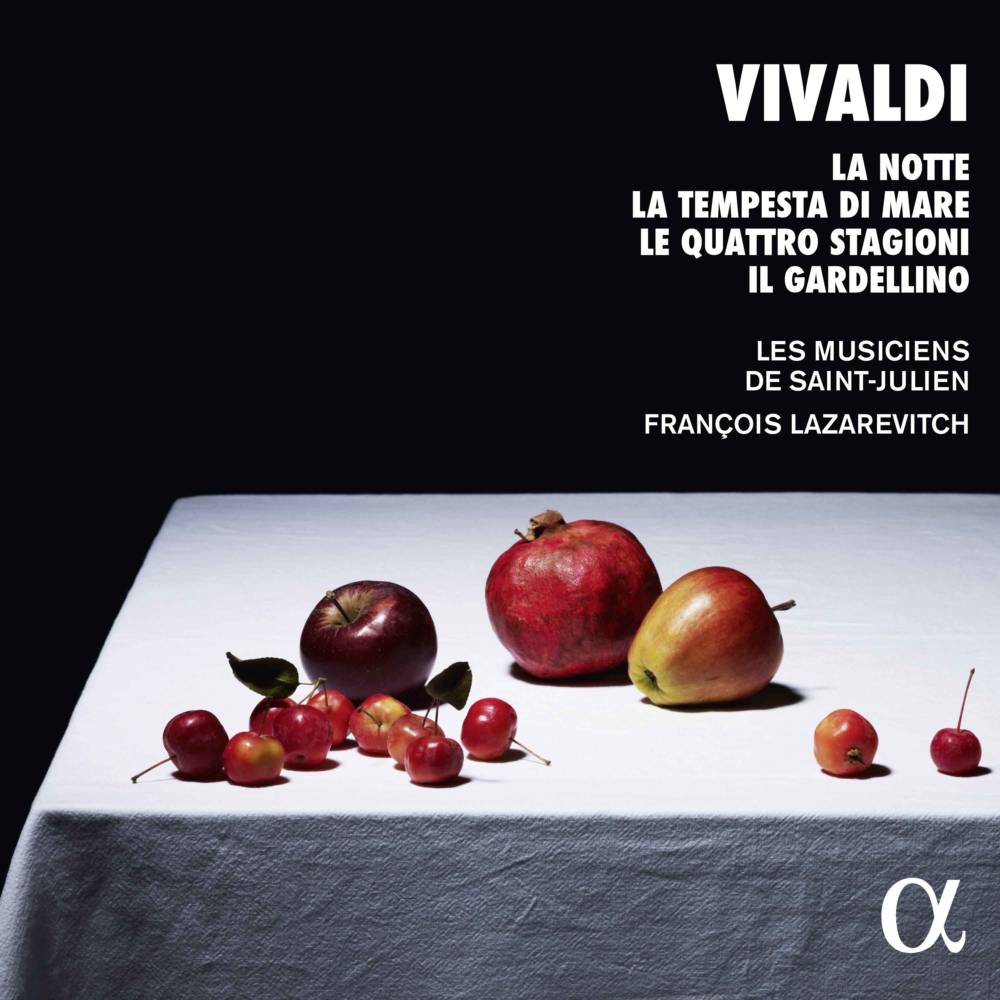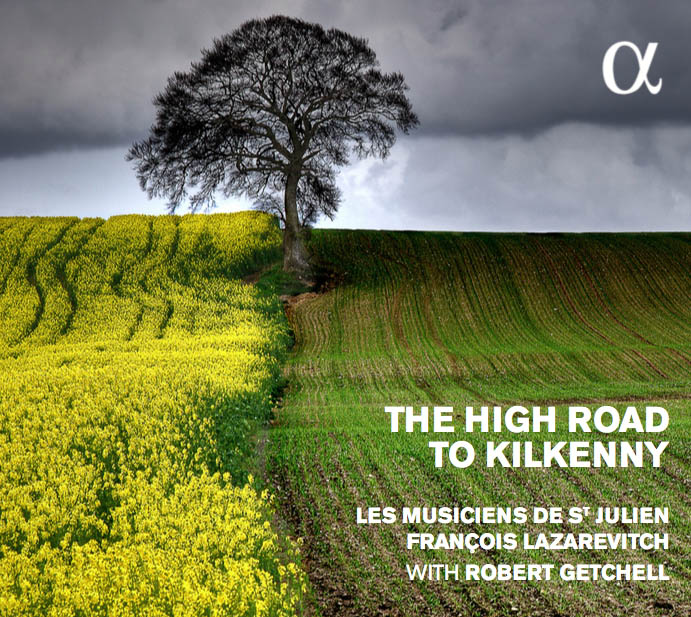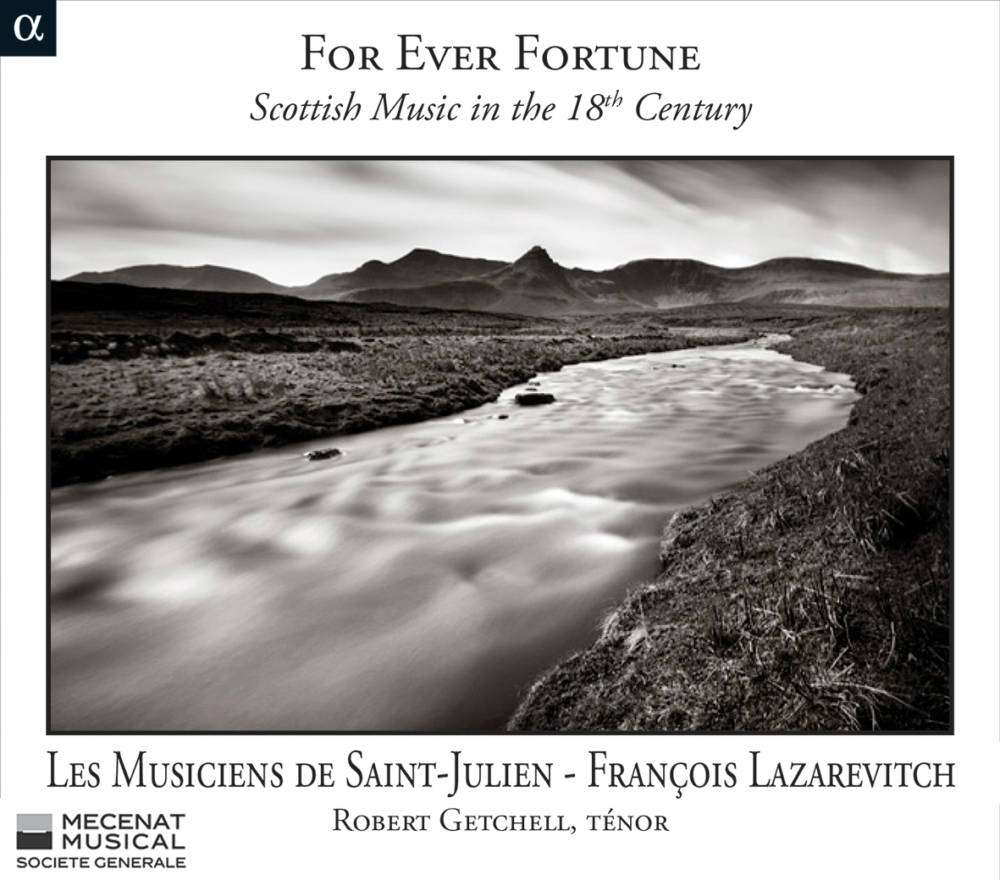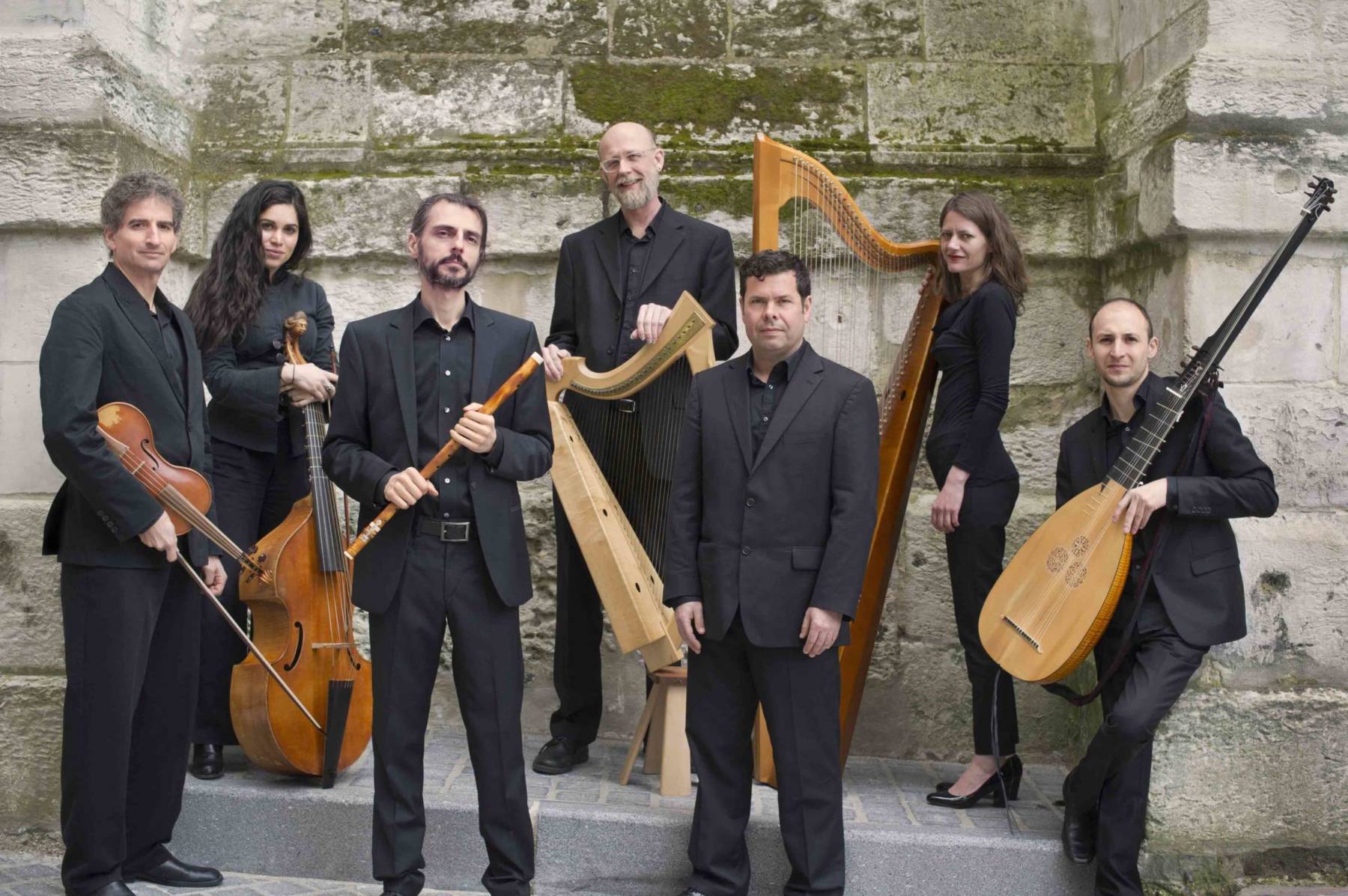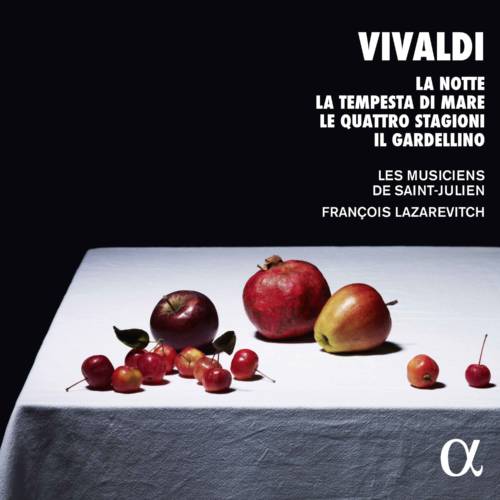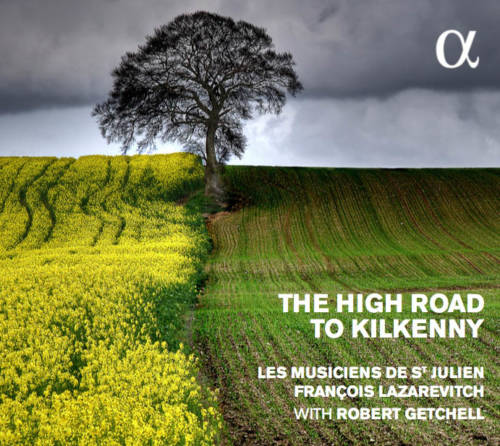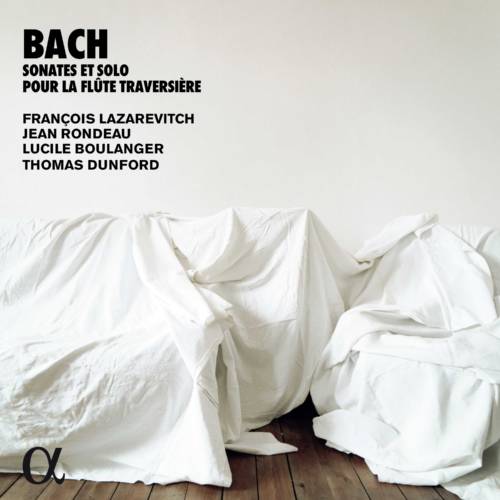Purcell Songs & Dances
Airs for countertenor and instrumental dances

Description
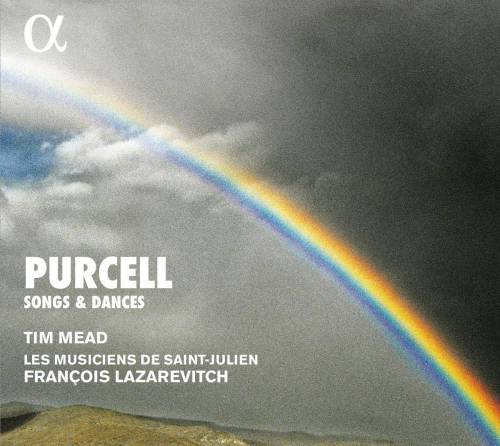
Disc
Purcell, Songs and dances
The Musiciens de Saint-Julien, under the leadership of the virtuoso flautist François Lazarevitch have already passed beneath the skies of Ireland and Scotland, but here they sing with countertenor Tim Mead as they cross to the land of England with this mainly secular programme, dedicated to Henry Purcell, varying the climates in the alternation of instrumental dances and sung airs.
« O Solitude », « Strike the Viol », « The Cold Song »… If Les Musiciens de Saint-Julien have chosen these famous titles above all for pleasure, they have also used this English programme to add a new piece to the puzzle of their map of the United Kingdom. They also show – and the atypical colours of the small string ensemble completed by two flutes, a harp and a harpsichord/lute continuo are there to underline it – the musical porosity between Ireland, Scotland and England. The common thread, dear to the Musiciens de Saint-Julien, is that of popular music inscribed at the heart of art music, of a mixing of origins, practices and repertoires. It is easy to recognise the Scotch and Irish tunes that Purcell (1659-1695) incorporated into his jigs, hornpipes and chaconnes. Purcell is the only composer on this programme, but the variety of moods that follow one another or collide, ranging from gentle melancholy to lighter songs, revealing both the immense richness of the English composer and showing not only his extraordinarily varied palette but also the ever-changing light the ensemble shines on his music. The countertenor Tim Mead punctuates the dances with airs conceived for the opera and theatre stage, as well as for chamber music.

with the support of Adami
8 to 11 artists
Soloist
Tim MEAD, countertenor
Instruments
2 violins, viola, viola da gamba, double bass, transverse flute/recorder/musette, 2 recorders/oboes, theorbo/guitar, harpsichord/positive organ
Distribution in France :
Les Concerts parisiens
Vincent Lafourcade
vincent@concertsparisiens.fr
+33 (0)1 48 24 16 97 / +33 (0)6 68 81 20 08
Video
Forthcoming events
with this program
Programme
Curtain Tune [Timon of Athen – Z.632]
O Solitude, my sweetest choice (Z.406)
One charming Night [The Fairy Queen – Z.629]
Chaconne [The Fairy Queen – Z.629]
Here, the Deities Approve [Ode for St Cecilia’s Day, Z.339]
March [The Married Beau – Z.603]
Song Tune [“We the Spirits of the Air” – The Indian Queen – Z.630]
Hornpipe [The old Bachelor – Z.607]
‘Tis nature voice [Ode for St Cecilia’s Day, 1692 – Z.328]
Here let my life with as much silence slide [If ever I more riches did desire, cantate, Z.544]
Fantazia upon a ground (Z.731)
May her blest example chase – Jig [Tune: Hey boys, up go we] – Borry
Fairest Isle [King Arthur – Z.628]
What power Art Thou [King Arthur – Z.628]
Minuett – Hornpipe – Boree [Amphitrion – Z.572]
Strike the Viol, Touch the Lute [Come Ye Sons of Art, Birthday Ode, 1694, Z.323/5]
Press
september 2018
The Times
Hugh Canning
Album of the week
Reactions to this absorbing and revelatory disc will, I suspect, depend on how one responds to the “Frenchified” Purcell of François Lazarevitch’s Saint-Julien musicians. I heartily approve of their imaginative, improvisatory approach, which brings some of the instrumental music — the “Jig” following May Her Blest Example (from one of the Queen Mary birthday odes) and the Scotch Tune — close to the realms of their speciality, Celtic folk music. Their soloist, the countertenor Tim Mead, could hardly be more mainstream Anglophone in his approach in a series of Purcell hits: Strike the Viol (from Come Ye Sons of Art), Fairest Isle and What Power Art Thou (the shivering song usually sung by a bass) from King Arthur, and ’Tis Nature’s Voice (Ode for St Cecilia’s Day). The French/Celtic style rubs off on Mead’s vocal decoration to delectable effect.
